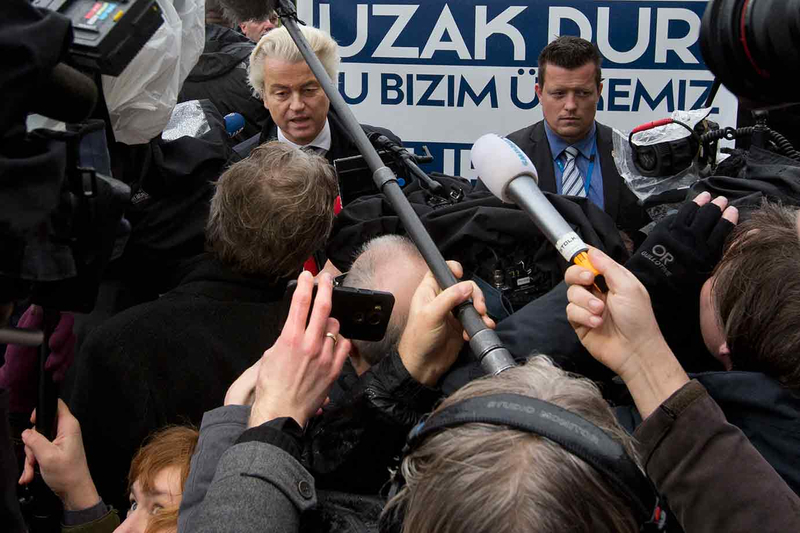As Europe and the world deal with the shock win of far right politician Geert Wilders in the Netherlands parliament elections, an old video of his resurfaced on social media and went viral.
In it, the man known as the Dutch Donald Trump, is heard telling Muslims to leave the country. The comparisons with Trump don’t end there. Eerily, they both have peroxide blond hair. But that’s beside the point.
The fact is, Wilders’ victory could not have come at a worse time, when the world is already deeply polarised and the war between Israel and Hamas has inflamed Islamophobia in many parts of the world.
The only hope is that Wilders will be forced to moderate some of his more radical views, in order to be able to form a government. His Freedom Party, called the PVV, got the largest number of seats in the Dutch parliament in the Nov. 22 vote largely on an anti-immigration platform.
Growing clout of far right
This however is only 37 out of the parliament’s 150 seats. The PVV needs at least two more moderate parties in order to form a government. Not everyone is comfortable with the idea of supporting Wilders as Prime Minister and it could take weeks or months before a solution is found.
Taking a more moderate and pragmatic political view now won’t shake off Wilders’ hardline past. His party’s manifesto for the Parliament elections for example, proposed a ban on Islamic schools, as well as a ban on headscarves from government buildings.
If he becomes Prime Minister, he has vowed to exit from the EU and end military aid to Ukraine. What does this mean for the Muslims of the Netherlands and for the Muslims across the continent of Europe?
Muslims constitute about 5 per cent of the Dutch population. Politicians like Wilders tap into spreading Islamophobia as well as concerns over migration among large sections of the population. This combined with a cost of living crisis is a time bomb waiting to go off. In many parts of Europe, the growing clout of far right parties is a sign of this.

Anti establishment sentiment
In Italy, they are in power. In France, far right leader Marine Le Pen finished second in the 2022 Presidential election, reflecting her party’s growing influence. In Germany, the AfD, a party with neo Nazi roots, is currently the second most popular party in the country.
Hungary, Poland, Austria, Spain and Finland are all facing similar challenges. What is common to all the far right parties in these countries is that they play on fear among a large section of people about immigration at a time of economic struggle.
Nationalism and preservation of cultural identity are common rallying points. Hungary’s Prime Minister Viktor Orban was ecstatic with news of Wilders win, saying in a social media post, “The winds of change are here! Let’s hope that the wind will blow all over Europe.”
So what can liberal, centrist parties in Europe do to win the narrative back? For one, they need to handle the fears and concerns of citizens with a clear political and economic agenda. Many seem disconnected from what voters want.
Much like Donald Trump’s win in 2016, far right parties are also riding on the back of a general anti establishment sentiment, where people were simply fed up with the political order and wanted change.
Ironically, Trump may well be on his way back to the White House next year, as disillusionment with the Biden administration grows. The world is going through a geo political and economic churn. 2024 will probably be worse.
Centrist parties need to take back the narrative from the far right, and they need to do it now.







_resources1_16a45059ca3_small.jpg)

